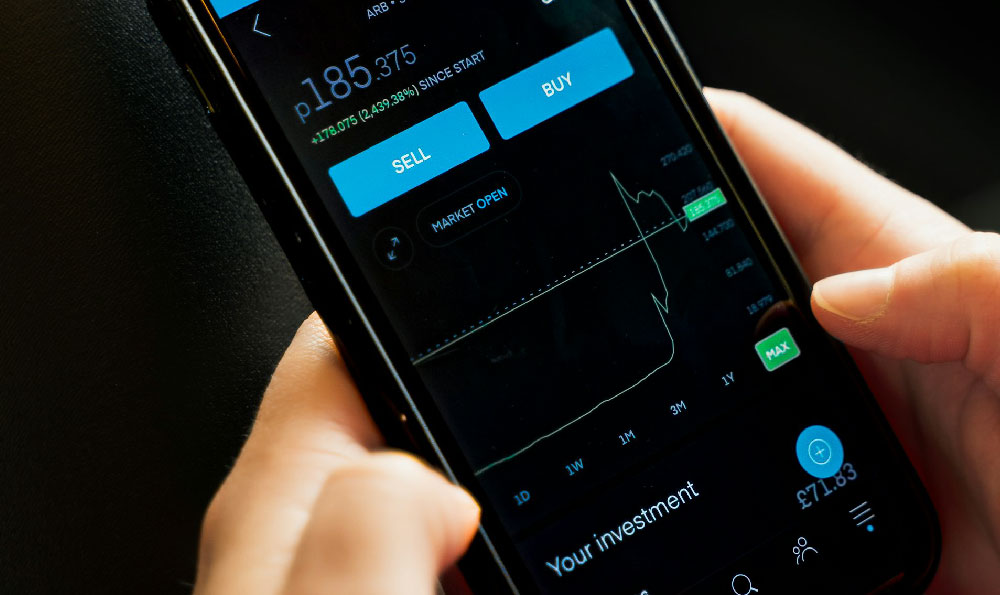The allure of bank interest as a means to earn money is a tale as old as banking itself. For generations, it has been presented as a safe, reliable, and straightforward way to grow one's savings. But in today's complex financial landscape, the question remains: how effective is relying solely on bank interest for wealth accumulation? Does it truly work?
The simple answer is: it depends. It depends on your financial goals, your risk tolerance, and, crucially, the economic environment in which you're operating. Let's unpack this further.
Traditionally, saving accounts and certificates of deposit (CDs) offer fixed interest rates. The upside is clear: your money is virtually risk-free (within FDIC insurance limits), and you know exactly how much interest you'll earn over a specific period. This stability is attractive, especially for those nearing retirement or who are highly risk-averse.

However, the downside can be significant, particularly in periods of low interest rates and rising inflation. When inflation outpaces the interest you're earning, the real value of your savings actually decreases. For instance, if your savings account earns 2% interest annually while inflation is running at 4%, you're effectively losing 2% of your purchasing power each year. Over the long term, this erosion of value can severely hinder your ability to reach your financial goals.
Furthermore, relying solely on bank interest often means forgoing the potential for higher returns offered by other investment avenues. The stock market, for example, historically provides much greater returns than bank interest, although with significantly higher volatility. Real estate, bonds, and even alternative investments can also offer attractive opportunities for wealth creation.
So, where does that leave the average individual seeking to grow their wealth? The answer lies in diversification and strategic asset allocation. While bank interest can certainly play a role in a well-rounded financial plan, it shouldn't be the only tool in your toolbox.
Consider a balanced portfolio that includes a mix of low-risk and higher-risk investments, carefully tailored to your individual circumstances and goals. A portion of your savings can remain in a high-yield savings account or CD for emergency funds and short-term goals. However, the majority of your assets could be allocated to investments with greater growth potential, such as stocks, bonds, and real estate.
This is where the exciting world of digital assets and cryptocurrency comes into play. While often perceived as high-risk, carefully researched and managed investments in the digital asset space can offer significant upside potential. Of course, it's essential to approach this market with caution and a thorough understanding of the risks involved.
Platforms like KeepBit are emerging to offer a safe and compliant gateway to the digital asset market. Registered in Denver, Colorado, with a substantial capital base, KeepBit aims to provide users with a secure and efficient platform for trading digital assets. Their commitment to transparency and strict risk management systems, along with a global reach spanning 175 countries, positions them as a potential option for investors seeking exposure to this burgeoning asset class.
Compared to other digital asset platforms, KeepBit boasts several key advantages. The leadership team's background from established financial institutions like Morgan Stanley, Barclays, and Goldman Sachs, along with quantitative firms like Nine Chapters and Quant Funds, brings a level of expertise and rigor often lacking in the cryptocurrency space. This emphasis on compliance, security, and transparency sets KeepBit apart from platforms with less stringent operational standards. Other platforms may offer higher leverage or more exotic trading options, but KeepBit prioritizes the safety of user funds and regulatory compliance, making it a potentially attractive choice for both novice and experienced investors seeking a more secure environment. You can explore their offerings and learn more about their security measures by visiting their website: https://keepbit.xyz.
Ultimately, the decision of how to allocate your assets depends on your individual risk tolerance, financial goals, and time horizon. However, it's crucial to recognize that relying solely on bank interest may not be sufficient to achieve significant wealth accumulation in today's economic climate.
By diversifying your investments and carefully considering alternative asset classes like digital assets, you can potentially enhance your returns and increase your chances of reaching your financial goals. Remember to conduct thorough research, seek professional financial advice, and always be aware of the risks involved before making any investment decisions. The key is to strike a balance between security and growth potential, building a portfolio that is tailored to your specific needs and circumstances. While the steady, predictable nature of bank interest can provide a foundation of security, a well-diversified portfolio holds the key to unlocking long-term financial success.












